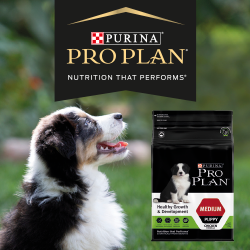Welsh Corgi (Pembroke)
General Information - Welsh Corgi (Pembroke)

Group:
Working
Size:
Medium
Lifespan:
10-16 years
Exercise:
Medium
Grooming:
Very low
Trainability:
High
Watchdog Ability:
Very high
Protection Ability:
High
Area of Origin:
Wales
Date of Origin:
Obscure
Other Names:
None
Original Function:
Cattle driving
History
Precisely when the Welsh adopted the Pembroke is obscure. Indigenous to South West Wales, it is believed that the forefathers of the Pembroke Welsh Corgi were introduced by Flemish Weavers, brought to Britain in the 1100s by Henry I. Now accepted as being of Spitz origin (as opposed to the original Cardigan variety, which is alleged to be of Dachshund descent) it has been suggested that its origins are a combination of the progenitors of the Keeshond, Pomeranian, Schipperke and Swedish Vallhund. However, there is no ambiguity that the Pembroke was a highly valued associate of the Welsh drover in years gone by and indeed, is still worked today as a sheep and cattle dog in many countries.The Pembroke as a pure breed has now evolved to a very high level of quality worldwide. Perhaps its greatest claim to fame, has been its popularity with the British Royal Family. In 1933 the then Duke of York obtained for his daughters a Pembroke puppy, Rozavel Golden Eagle, who won a special place in the heart of Princess Elizabeth (later HM Queen Elizabeth II). To this day the breed remains the royal favourite.
Temperament
Known for its bark, which is worse than its bite, the Pembroke is a small dog that thinks big. The Pembroke should be outgoing to the point of being pushy, but not precocious and never, ever, shy or aggressive. It is intelligent enough to allow you to think that you are the boss, then there are times when you will realise that it has outsmarted you. This intelligence, combined with a wicked sense of humour, frequently makes Pembroke owners wonder whether their dog is laughing with or at them!Upkeep
Like many humans, the Pembroke requires life membership to a slimming club! It is more than happy if it can finish its own mean and then help you out with yours! It's tendency toward obesity can lead to spinal problems so food intake must be rigidly controlled. In all other respects the Pembroke is remarkably healthy. Most of the year, grooming requirements are minimal however a much higher level of brushing or coming is required during seasonal coat shedding.The Pembroke will train you with ease to its way of thinking and doing things. Although a house pet without peer, as an urban dweller the Pembroke requires companionship and regular exercise. Without this it may devise undesirable methods of seeking attention. Two Pembrokes in a household are often better than one. Few of its peers equal its flexibility both in the send of what it was bred to do and the role it can play as a member of the family.




